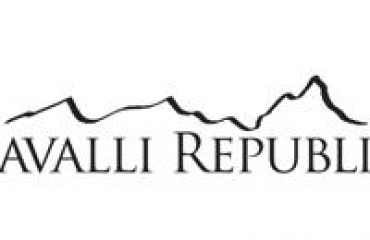Supreme Court Allows Vaccine Mandate for New York Health Care Workers – The New York Times
Advertisement
Supported by
Doctors and nurses challenged a state coronavirus vaccine requirement that had medical but not religious exemptions, saying it violated their right to free exercise of their faiths.
Send any friend a story
As a subscriber, you have 10 gift articles to give each month. Anyone can read what you share.
By Adam Liptak
WASHINGTON — The Supreme Court on Monday refused to block New York’s requirement that health care workers be vaccinated against the coronavirus even when they cite religious objections.
As is often the court’s practice in rulings on emergency applications, its unsigned order included no reasoning. But Justice Neil M. Gorsuch filed a 14-page dissent saying that the majority had betrayed the court’s commitment to religious liberty.
Justice Samuel A. Alito Jr. joined Justice Gorsuch’s dissent. Justice Clarence Thomas also said he would have blocked the vaccine requirement, but he gave no reasons.
The Supreme Court in October refused to provide relief to health care workers in Maine who had made an essentially identical request in a challenge to a similar state requirement, over the dissents of the same three justices.
The court has also rejected challenges to vaccination requirements at Indiana University, for personnel in New York City’s school system and for workers at a Massachusetts hospital. The court also rejected a challenge to a federal mandate requiring masks for air travel.
Those rulings were all issued by only one justice, which can be a sign that the legal questions involved were not considered substantial. But those rulings did not involve religion.
Cases challenging President Biden’s vaccine mandates affecting the private sector may soon reach the court as well. Challenges to the mandates — for federal contractors, health care workers and companies with more than 100 employees — are pending in lower courts.
In his dissent on Monday in the case from New York, Justice Gorsuch wrote that the practical consequences of the court’s decision would be grave.
“Thousands of New York health care workers face the loss of their jobs and eligibility for unemployment benefits,” he wrote.
“These applicants are not ‘anti-vaxxers’ who object to all vaccines,” Justice Gorsuch added. “Instead, the applicants explain, they cannot receive a Covid-19 vaccine because their religion teaches them to oppose abortion in any form, and because each of the currently available vaccines has depended upon abortion-derived fetal cell lines in its production or testing.”
“The Free Exercise Clause protects not only the right to hold unpopular religious beliefs inwardly and secretly,” he wrote. “It protects the right to live out those beliefs publicly.”
New York State estimates that about 4 percent of its health care work force — or 37,000 workers — have left their jobs as a result of the vaccine mandate, which was issued by Gov. Kathy C. Hochul on Aug. 26 and went into effect about a month later. Because of the pending court cases, workers who had requested religious exemptions were permitted to work until Nov. 22, but then had to get vaccinated, go on leave or resign.
Ms. Hochul has since declared a state of emergency in light of a serious shortage of medical workers in upstate New York exacerbated by these job losses. She has called the National Guard to assist in short-staffed nursing homes as coronavirus cases increase. It is unclear how many of these workers left specifically for religious reasons, but state data shows that about 4,000 additional health care workers have left or been placed on leave for being unvaccinated since the ban on religious exemptions went into effect.
The ruling from the Supreme Court came in a pair of challenges brought by doctors, nurses and other health care workers who said the requirement violated their right to the free exercise of religion. They argued that the availability of a medical exemption meant that the state was discriminating against religious practice, citing decisions of the Supreme Court striking down limits on religious gatherings that the justices in the majority said were more restrictive than ones imposed on secular gatherings.
A federal judge in Brooklyn ruled against the challengers in the case before him, but another federal judge, in Utica, N.Y., ruled for the challengers in a second case.
The global surge. As the Omicron variant sweeps across the planet, the global tally of new coronavirus cases has for the first time passed one million per day on average. The previous daily average global case record set last April has already been broken three times this week.
Canceled flights. With Covid surge, has come thousands of flight cancellations, as airlines are unable to adequately staff their flights. Looking for relief, the airline industry pushed the CDC to shorten its recommended isolation period for Americans infected with Covid-19. On Monday, it reduced the recommended quarantine period to five days for those without symptoms.
Around the world. South Africa announced that its Omicron wave had passed without a large spike in deaths. Case counts in the country are down 30 percent in the last week. The announcement offered cautious hope to other countries grappling with the fast-spreading variant.
Staying safe. Worried about spreading Covid? Keep yourself and others safe by following some basic guidance on when to test and how to use at-home virus tests (if you can find them). Here is what to do if you test positive for the coronavirus.
In a consolidated appeal in the two cases, the United States Court of Appeals for the Second Circuit, in New York, refused to block the requirement.
“Faced with an especially contagious variant of the virus in the midst of a pandemic that has now claimed the lives of over 750,000 in the United States and some 55,000 in New York, the state decided as an emergency measure to require vaccination for all employees at health care facilities who might become infected and expose others to the virus, to the extent they can be safely vaccinated,” a unanimous three-judge panel of the appeals court wrote in an unsigned opinion. “This was a reasonable exercise of the state’s power to enact rules to protect the public health.”
In an emergency application asking the Supreme Court to intercede, the health care workers’ lawyers wrote that the requirement “imposes an unconscionable choice on New York health care workers: abandon their faith or lose their careers and their best means to provide for their families.”
Barbara D. Underwood, New York’s solicitor general, responded that the state did not allow a religious exemption for its longstanding requirements for measles and rubella. The medical exemption for the vaccination requirement, she added, was “tightly constrained in both scope and duration,” making very few people eligible for it.
As a general matter, she wrote, “achieving high vaccination rates in particularly vulnerable settings is of the utmost importance.”
In his dissent, Justice Gorsuch wrote that protecting religious freedom warranted a different approach.
“Today, we do not just fail the applicants,” he wrote. “We fail ourselves.”
“We allow the state to insist on the dismissal of thousands of medical workers — the very same individuals New York has depended on and praised for their service on the pandemic’s front lines over the last 21 months,” the justice wrote. “To add insult to injury, we allow the state to deny these individuals unemployment benefits, too. One can only hope today’s ruling will not be the final chapter in this grim story.”
Justice Gorsuch had invoked similar reasoning in the Maine case.
“Where many other states have adopted religious exemptions, Maine has charted a different course,” he wrote at the time. “There, health care workers who have served on the front line of a pandemic for the last 18 months are now being fired and their practices shuttered. All for adhering to their constitutionally protected religious beliefs. Their plight is worthy of our attention.”
Sharon Otterman contributed reporting from New York.
Advertisement



